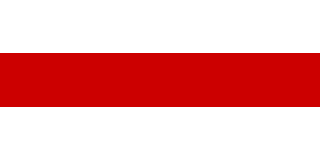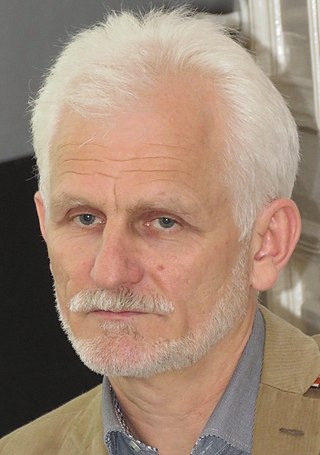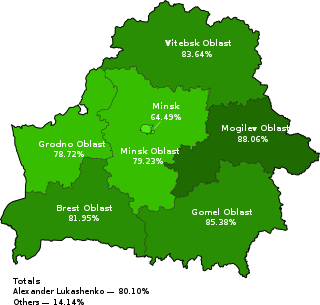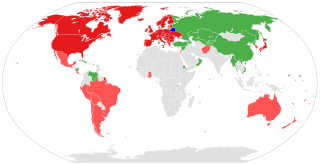| | ||||||||||||||||||||||||||
| ||||||||||||||||||||||||||
All 110 seats in the House of Representatives 56 seats needed for a majority | ||||||||||||||||||||||||||
| ||||||||||||||||||||||||||
 |
|---|
Parliamentary elections are scheduled to be held in Belarus in November 2023. [1]
| | ||||||||||||||||||||||||||
| ||||||||||||||||||||||||||
All 110 seats in the House of Representatives 56 seats needed for a majority | ||||||||||||||||||||||||||
| ||||||||||||||||||||||||||
 |
|---|
Parliamentary elections are scheduled to be held in Belarus in November 2023. [1]
The 2020–2021 Belarusian protests were a series of mass political demonstrations and protests against the Belarusian government and President Alexander Lukashenko. [2]
The 110 members of the House of Representatives were elected from single-member constituencies by first-past-the-post voting. [3]

Belarus, officially the Republic of Belarus, is a landlocked country in Eastern Europe. It is bordered by Russia to the east and northeast, Ukraine to the south, Poland to the west, and Lithuania and Latvia to the northwest. Covering an area of 207,600 square kilometres (80,200 sq mi) and with a population of 9.2 million, Belarus is the 13th-largest and the 20th-most populous country in Europe. The country has a hemiboreal climate and is administratively divided into seven regions. Minsk is the capital and largest city.

Alexander Grigoryevich Lukashenko is a Belarusian politician who has been the first and only president of Belarus since the establishment of the office on 20 July 1994, making him the longest-sitting European president.

The president of the Republic of Belarus is the head of state and head of government of Belarus. The office was created in 1994 with the passing of the Constitution of Belarus by the Supreme Soviet. This replaced the office of Chairman of the Supreme Soviet as the head of state. The tasks of the president include executing foreign and domestic policy, defending the rights and general welfare of citizens and residents, and upholding the Constitution. The president is mandated by the Constitution to serve as a leader in the social affairs of the country and to act as its main representative abroad. The duties, responsibilities and other transitional clauses dealing with the presidency are listed in Chapter Three, Articles 79 through 89, of the Constitution.

Mutual relations between the Republic of Belarus and the European Union (EU) were initially established after the European Economic Community recognised Belarusian independence in 1991.

Belarus–Ukraine relations are foreign relations between Belarus and Ukraine. Both countries are full members of the Baku Initiative and Central European Initiative. In the waning days of 2021, the relationship between Ukraine and Russia began rapidly deteriorating, culminating in a full-scale invasion in late February 2022. Belarus has allowed the stationing of Russian troops and equipment in its territory and its use as a springboard for offensives into northern Ukraine but has denied the presence of Belarusian troops in Ukraine.

The Republic of Poland and the Republic of Belarus established diplomatic relations on 2 March 1992. Poland was one of the first countries to recognise Belarusian independence. Both countries share a border and have shared histories, for they have been part of the Polish–Lithuanian Commonwealth and later, the Russian Empire. They joined the United Nations together in October 1945 as original members. The two countries are currently engaged in a border crisis.

Minsk State Linguistic University is a public university in Minsk, Belarus. It specializes in language education and offers courses in 18 foreign languages including English, German, French, Spanish, etc., as well as training teachers of Russian and Belarusian as foreign languages. It was founded in 1948 as Minsk State Pedagogical Institute for Foreign Languages and today is considered the flagship university in Belarus for language education and translator training.

Lidia Mikhailovna Yermoshina is a Belarusian politician. She was a member of the Central Election Commission of Belarus (1992–1996), and Chairwoman (1996–2021).

The Belarusian opposition consists of groups and individuals in Belarus seeking to challenge, from 1988 to 1991, the authorities of Soviet Belarus, and since 1995, the leader of the country Alexander Lukashenko, whom supporters of the movement often consider to be a dictator. Supporters of the movement tend to call for a parliamentary democracy based on a Western model, with freedom of speech and political and religious pluralism.

Ales Viktaravich Bialiatski is a Belarusian pro-democracy activist and prisoner of conscience known for his work with the Viasna Human Rights Centre. An activist for Belarusian independence and democracy since the early 1980s, Bialiatski is a founding member of Viasna and the Belarusian Popular Front, serving as leader of the latter from 1996 to 1999. He is also a member of the Coordination Council of the Belarusian opposition. He has been called "a pillar of the human rights movement in Eastern Europe" by The New York Times, and recognised as a prominent pro-democracy activist in Belarus.

Belarusian nationalism refers to the belief that Belarusians should constitute an independent nation. Belarusian nationalism began emerging in the mid-19th century, during the January Uprising against the Russian Empire. Belarus first declared independence in 1917 as the Belarusian Democratic Republic, but was subsequently invaded and annexed by the Russian Soviet Federative Socialist Republic in 1918, becoming part of the Soviet Union. Belarusian nationalists both collaborated with and fought against Nazi Germany during World War II, and protested for the independence of Belarus during the late 1980s and early 1990s.

Presidential elections were held in Belarus on Sunday, 9 August 2020. Early voting began on 4 August and ran until 8 August.
Events in the year 2020 in Belarus.

The 2020–2021 Belarusian protests were a series of mass political demonstrations and protests against the Belarusian government and President Alexander Lukashenko. The largest anti-government protests in the history of Belarus, the demonstrations began in the lead-up to and during the 2020 presidential election, in which Lukashenko sought his sixth term in office. In response to the demonstrations, a number of relatively small pro-government rallies were held.

Sviatlana Heorhiyeuna Tsikhanouskaya is a Belarusian educator and the leader of the Belarusian democratic movement. She ran in the 2020 Belarusian presidential election as the main opposition candidate after her husband Sergei Tikhanovsky was arrested in Hrodna by Belarusian authorities. After Lukashenko declared himself the winner she was escorted to the Lithuanian border by Belarusian security forces into an exile in Lithuania. Since August 2020, she has worked with a staff of 16 people in exile in Poland.

The Coordination Council for the Transfer of Power, known often as the Coordination Council, is a Belarusian non-governmental body created by presidential candidate Sviatlana Tsikhanouskaya to facilitate a democratic transfer of power. The Council, founded during the 2020 Belarusian protests in response to the disputed 2020 Belarusian presidential election, has 64 core members with a 7-member leadership presidium.

The following is a list of the official reactions to the 2020 Belarusian presidential election and the surrounding 2020 Belarusian protests.

The United Transitional Cabinet is an alternative government for Belarus that was formed in August 2022.
Valery Kavaleuski is a former Belarusian diplomat. On 9 August 2022, Sviatlana Tsikhanouskaya appointed him as the Deputy Head and Representative for Foreign Affairs to the United Transitional Cabinet of Belarus that is opposed to the de facto government of Alexander Lukashenko. Before that Kavaleuski was Representative on international affairs and then the Head of the Cabinet of Representatives in Tsikhanouskaya's team.